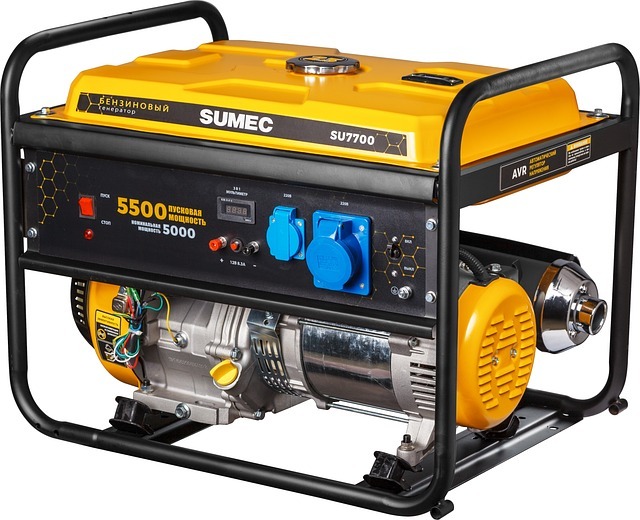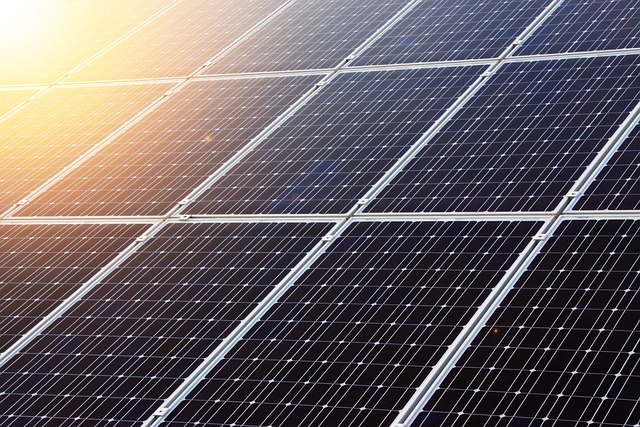Power outages, unreliable voltages, the fear of an important event going down the drain due to power failures, we have all been there. It is stressful and worrisome. Nonetheless, as history keeps account, problems have always been tackled with solutions in the form of human inventions.
The power generator has its roots traced back to 1831 and Michael Faraday’s genius. The discoveries have since developed, leading up to the box-shaped magic we today have, called the power generator.
Let us take a journey through the different types of generators and how best to use and take care of them.
Power generator
A power generator is a device that is capable of generating power, as the name suggests. It does so by converting a form of energy into electrical energy. The initial energy supplied to the generator can be mechanical, chemical, or another type.
Power generators are used to ensure a constant supply of electricity in places where there is a chance of power outages or electric failures. The generators can be turned on manually or automatically, depending on their type. A seamless provision of power even when there are issues is worth investing in a generator. In generators that are used to provide a backup electricity supply, the initial energy comes from an external circuit. This external circuit is run with the help of different fuels like gasoline, petrol, diesel, etc.
Over the years, the technology used in generators for temporary power supply has evolved a lot. It all started from the simple invention of devices with generators, but later it was taken on a bigger scale, and bigger machines with the capability of powering several devices and even entire buildings have been made.
Types
This transformative invention can broadly be categorized into three different types: portable, standby, and inverter. Each type varies from the other in terms of its design and usability for different purposes and times.
However, other newer types exist too. Their elements intersect a lot with the three main types. Some examples are hand-cranked generators and solar powered generators.
Portable
As the name suggests, a portable generator is moveable and can be carried to different places to provide a temporary power supply. It functions with the help of gas or diesel fuel. Connecting this type of generator into different places is a lot easier than its counterparts.
The main complaint that this generator carries along is the extreme noise pollution that it causes. It is often considered wise to keep generators away from where people are to fix the problem, but a portable generator needs to be on site. This problem can easily be fixed though, by installing a generator silencer and other technologies.
A portable generator is mostly used in areas completely disconnected from power, at construction sites, or trips to such areas. Sometimes these are used in homes too, but a portable generator isn’t the best type of generator for home usage.
Standby
Standby generators are often referred to as emergency power systems. The system contains an automatic transfer switch that turns on immediately after the power goes out, with a waiting time of only a few seconds.
An internal combustion engine is installed in this, which means that it requires oil to work. However, there is no preference. Any fuel that is readily available will be compatible with liquid propane or natural gas.
A standby generator is smart and self-correcting. It performs utility tests to optimize performance and monitors its utility power.
The standby generator serves its purpose best in healthcare power systems, elevators, and all emergency services that cannot risk losing power.
Inverter
Inverter generators completely deviate from the widely held stereotype about the noise pollution caused by generators. These are quieter and do not produce much noise. A slight disturbance is allowed for all electric machines.
Alternating current (AC) is produced as the engine of the generator is connected to an alternator. However, the generator converts the AC power into DC power so that it can be supplied and used to power houses. Due to this intricacy, an inverter generator produces safe energy to be given to laptops and mobile phones without worrying about any sort of malfunction.
Moreover, these are 20% more efficient than other conventional generators. This leads to lower fuel consumption and consequently lower costs. Due to their efficiency, they also produce fewer emissions, cutting down the contribution towards environmental pollution.
The inverter generators also happen to be a lot more compact, making them perfect for a road trip with friends or family. Its best usage is in a house but is often used elsewhere.
Solar powered
A solar powered generator is also a type of portable generator, with the exception of the absence of fuel. The advantages stay the same, but since this uses renewable energy and does not cause emissions, the advantages are two-fold.
Sunlight is captured through solar panels, and the energy is used to charge the batteries that drive the generator. They are not able to provide a lot of power but can be used in houses to power some appliances while not causing any noise.
Maintenance
Generators are hefty investments, and like all machines, they cannot be left to work on their own without regular check-ins, repairs, and maintenance.
A typical, regular, bi-weekly check-in must include the following:
- Checking for leaks.
- Inspection of cables and terminals.
- Ensuring the levels of coolant and oil are adequate.
Considering how much a generator is used over a while, more extensive check-ins are needed on a monthly, six months, or annual basis. These must address the list of things below.
- Cleaning all the filters and fuel lines. These could be clogged and might impact performance.
- Battery test and inspecting the electrolyte levels to ensure battery failure does not occur.
- If something is found to be in a deplorable state on inspection, it must be replaced or repaired.
- Change oils.
Catching any problems earlier on saves repair costs and improves the generator’s efficiency, regardless of its type. For more tips, click here.
Conclusion
It all boils down to personal or professional needs when choosing which one would work perfectly for a certain individual or company. This article concisely contains all the information on the different types of generators, their sizes, environmental impact, and ability to function.
One can easily weigh the pros and cons and put them against their needs. For example, a hospital would require a standby generator because hospital machinery cannot be shut down for a second as it risks patients’ lives. Also, a hospital would have the budget to invest in a big, functional standby generator, unlike a household or small office.
There is no right or wrong option when looking to buy a generator; there’s only the question of which generator suits you the best.

